Background
Joanna Bourke was born in 1963 in Blenheim, New Zealand. She was born to Christian missionary parents. As a young child, Joanna lived in Zambia and Solomon Island, before her parents and four siblings moved to Haiti.

Auckland, Auckland 1010, New Zealand
Joanna Bourke attended the University of Auckland, gaining a Bachelor's and Master's degrees in History.
1813 E Main St, Salem, VA 24153, United States
Joanna Bourke held academic posts at American National University.
Canberra ACT 0200, Australia
Joanna Bourke undertook her Doctor of Philosophy at the Australian National University.



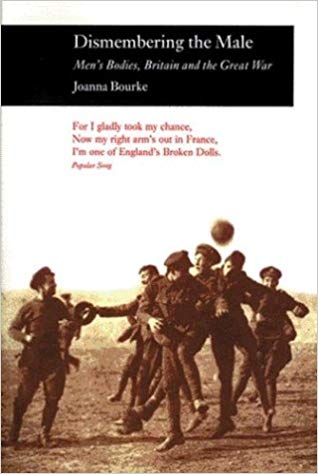
(That notions of femininity were seriously disrupted durin...)
That notions of femininity were seriously disrupted during the First World War has become obvious in recent years. But what happened to masculinity at the same time? Based on letters, diaries and oral histories, "Dismembering the Male" explores the impact of the 'war to end all wars' on the male body. Joanna Bourke argues convincingly that military experiences led to a greater sharing of gender identities between men of different classes and ages. She concludes that attempts to construct a new type of masculinity failed as the threat of another war, and with it the sacrifice of a new generation of men, intensified.
https://www.amazon.com/Dismembering-Male-Britain-Picturing-History/dp/1861890354/?tag=2022091-20
1999

(Fear - the word, itself, conjures the appropriate respons...)
Fear - the word, itself, conjures the appropriate response. With a dark cacophony of associations like fright, dread, horror, panic, alarm, anxiety, and terror, fear is universally understood as one of the most basic and powerful of human emotions, obtaining a nearly palpable and overwhelming substance in today's world.
https://www.amazon.com/Fear-Cultural-History-Joanna-Bourke/dp/1593761139/?tag=2022091-20
2006
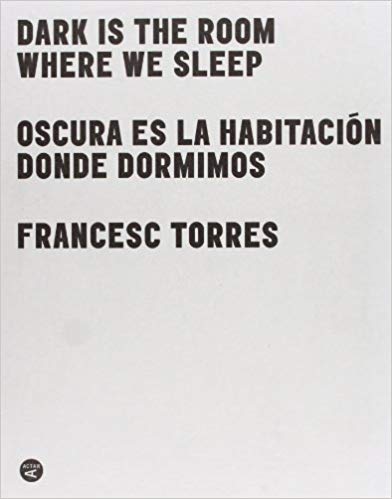
(About seven years ago I started working with the idea of ...)
About seven years ago I started working with the idea of the recovery of the memory of Spain's recent history. First I considered an archaeological project centering on the material sediment of the Civil War in the old battlefields, specifically the Ebro front. At the same time, the Spanish Association for the Recovery of Historical Memory (ARMH) had begun to locate, excavate and exhume the mass graves from the Spanish war and post-war. After a protracted struggle with two successive Catalan regional administrations of opposing ideological signs who thwarted my project in Catalonia, despite my having funding from two US foundations (Fulbright and American Center) and the support of two Catalan universities, I ended up doing it in Burgos in collaboration with the ARMH. This book documents an exercise in citizenship by a group of Spaniards determined to rescue a part of their history which had been sequestered.
https://www.amazon.com/Dark-Room-Where-Sleep-Habitacio%CC%81n/dp/8496540685/?tag=2022091-20
2007
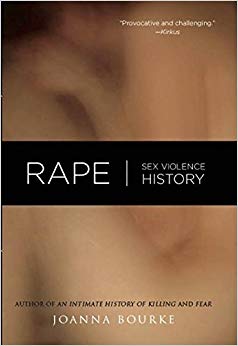
(Joanna Bourke takes the issue of rape out from the academ...)
Joanna Bourke takes the issue of rape out from the academic ghettos and distills the truth so often exploited to sell newspapers. Neither prurient nor overly sympathetic, she investigates rape from a historical standpoint examining the history of sexual aggression, the idea of rape as a social construct, and the often-ignored idea of embodiment, and analyzes the physical response of rapists as well as the often-cited - rape is about power theories. Indebted to a growing body of sophisticated feminist analyses about rape victims, Bourke here shifts the emphasis from the victims to the perpetrators in order to place rapists in their historical context.
https://www.amazon.com/Rape-Violence-History-Joanna-Bourke/dp/1593761147/?tag=2022091-20
2007
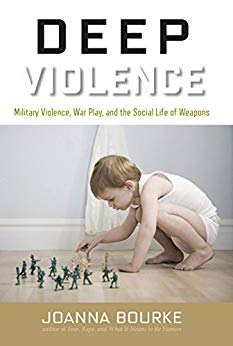
(2014 marks the 100th anniversary of the declaration of th...)
2014 marks the 100th anniversary of the declaration of the First World War, and with it comes a deluge of books, documentaries, feature films, and radio programs. We will hear a great deal about the horror of the battlefield. Bourke acknowledges wider truths: war is unending and violence is deeply entrenched in our society. But it doesn't have to be this way. This book equips readers with an understanding of the history, culture, and politics of warfare in order to interrogate and resist an increasingly violent world.
https://www.amazon.com/Deep-Violence-Military-Social-Weapons-ebook/dp/B00PSSF7UC/?tag=2022091-20
2015
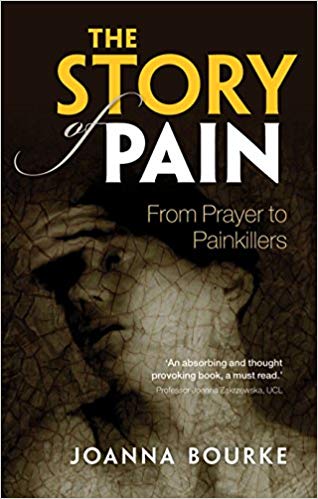
(Everyone knows what is feels like to be in pain. Scraped ...)
Everyone knows what is feels like to be in pain. Scraped knees, toothaches, migraines, giving birth, cancer, heart attacks, and heartaches: pain permeates our entire lives. We also witness other people - loved ones - suffering, and we 'feel with' them. It is easy to assume this is the end of the story: 'pain-is-pain-is-pain', and that is all there is to say. But it is not. In fact, the way in which people respond to what they describe as 'painful' has changed considerably over time. In the eighteenth and nineteenth centuries, for example, people believed that pain served a specific (and positive) function - it was a message from God or Nature; it would perfect the spirit.
https://www.amazon.com/Story-Pain-Prayer-Painkillers/dp/0199689431/?tag=2022091-20
2017
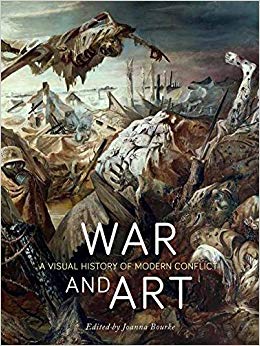
(In times of crisis, we often turn to artists for truth-te...)
In times of crisis, we often turn to artists for truth-telling and memory-keeping. There is no greater crisis than war, and in this sumptuously illustrated volume, we find a comprehensive visual, cultural, and historical account of the ways in which armed conflict has been represented by artists. Covering the last two centuries, from the Crimean War to the present day, the book shows how the artistic portrayal of war has changed, from a celebration of heroic exploits to a more modern, troubled, and perhaps truthful depiction of warfare and its consequences.
https://www.amazon.com/War-Art-Visual-History-Conflict/dp/1780238460/?tag=2022091-20
2017
educator historian speaker writer
Joanna Bourke was born in 1963 in Blenheim, New Zealand. She was born to Christian missionary parents. As a young child, Joanna lived in Zambia and Solomon Island, before her parents and four siblings moved to Haiti.
Joanna Bourke attended the University of Auckland, gaining a Bachelor's and Master's degrees in History. She undertook her Doctor of Philosophy at the Australian National University.
Joanna Bourke is a Professor of History at Birkbeck College, the University of London. Joanna is the prize-winning author of eleven books, including histories on modern warfare, military medicine, psychology and psychiatry, the emotions, and rape. Among others, she is the author of Dismembering the Male: Men's Bodies, Britain, and the Great War (1996), An Intimate History of Killing (1999), Fear: A Cultural History (2005) and Rape: A History from the 1860s to the Present (2007). Her book, What it Means to be Human: Reflections from 1791 to the Present was published by Virago in 2011. In 2014, she was the author of The Story of Pain: From Prayer to Painkillers (OUP) and Wounding the World: How Military Violence and War-Play are Invading our Lives (Virago). Her books have been translated into Chinese, Russian, Spanish, Catalan, Italian, Portuguese, Czech, Turkish, and Greek. An Intimate History of Killing won the Wolfson Prize and the Fraenkel Prize. She is a frequent contributor to TV and radio shows, and a regular correspondent for newspapers. Joanna Bourke was a visiting professor of History at Gresham College from 2017 till 2019.
Bourke lives in London. She is the Director of the Birkbeck Trauma Project (formerly, the Birkbeck Pain Project). Bourke is a prolific public speaker and is College Orator at Birkbeck.
Joanna plays a significant role in developing and maintaining UON's research leadership in the area of Violence Studies by facilitating greater engagement with international partners, driving stronger models of collaboration (through centers, hubs, and clusters) and maximizing the translation and societal impact of the research. She is especially keen to facilitate the research careers of Early Career Researchers and HDR students, and also to build links between the School and external partners in other disciplines including Health and Medicine.
(2014 marks the 100th anniversary of the declaration of th...)
2015(Joanna Bourke takes the issue of rape out from the academ...)
2007(That notions of femininity were seriously disrupted durin...)
1999(About seven years ago I started working with the idea of ...)
2007(In times of crisis, we often turn to artists for truth-te...)
2017(Fear - the word, itself, conjures the appropriate respons...)
2006(Everyone knows what is feels like to be in pain. Scraped ...)
2017Bourke strongly believes in the power of education to improve our world.
Quotations:
"Bloodthirsty aggression is just so interesting. This is why, a few years ago, I surprised my friends by announcing that I was going to write about pain. Crucially, this book was not about inflicting pain, but rather about the experience of suffering it."
"I know the exact moment I made this decision: I had been in hospital after a serious operation and was, to put it mildly, in agony. My morphine pump wasn’t working. Stupidly, perhaps, I was anxious to be a “good patient” to the overworked night nurses, so I was determined not to complain. Instead, I focused on my breathing. A friend had given me a slim book to read, so I opened it in an attempt to distract myself."
In 2014 Bourke was elected a Fellow of the British Academy, the United Kingdom's national academy for the humanities and social sciences.
Bourke describes herself as a "socialist feminist."
